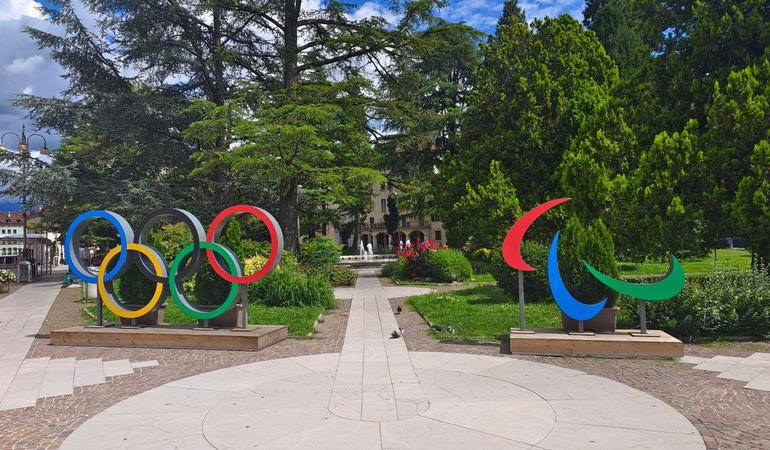
Milano-Cortina. Ecco come verranno spesi i 450 milioni di euro delle paralimpiadi


22 maggio 2024
The European elections are approaching and the election campaign is getting more and more intense. The Pavia Observatory has compiled a report for Greenpeace Italy investigating the presence of climate and environment in the electoral speeches of eleven Italian political leaders belonging to different parties. It emerges that references to these topics in the political debate are scarce, despite the climate urgency in which we find ourselves.
Surprisingly, Giorgia Meloni and Elly Schlein, the two protagonists of the election campaign, do not speak much on the subject
The political personalities involved in the survey are Angelo Bonelli, Carlo Calenda, Giuseppe Conte, Nicola Fratoianni, Riccardo Magi, Giorgia Meloni, Gilberto Pichetto Fratin, Matteo Renzi, Matteo Salvini, Elly Schlein and Antonio Tajani. The study starts by monitoring the statements they published on their respective Facebook pages and made in 98 evening editions of Rai, Mediaset and La7 news programmes and 57 episodes of the main political talk shows and in-depth programmes in the first two weeks of May.
The result is that in only 8 per cent of the cases did politicians mention the climate crisis, a percentage that comes close to 11 per cent if non-climate-related environmental issues are also included, but drops dramatically to 4 per cent if statements exclusively dedicated to global warming are considered.
Gilberto Pichetto Fratin of Forza Italia, as Minister of the Environment and Energy Security, is predictably one of the politicians who talk most about the environment, followed by Angelo Bonelli (Green Left Alliance), Riccardo Magi (United States of Europe) and Matteo Salvini (League). Surprisingly, the two protagonists of the election campaign do not speak much on the subject: Elly Schlein speaks about it in 7.8 per cent of the statements, while Giorgia Meloni stops at 3.4 per cent.
As Federico Spadini, Greenpeace Italy's Climate and Transport campaigner, puts it, 'despite the floods that hit northern Italy a few days ago, the record temperatures of the last few months, and a summer of drought just around the corner that threatens to bring the whole of central and southern Italy to its knees, most Italian politicians seem completely indifferent to the climate crisis and the actions needed to stop it.
Cars and pollution: the absurd battle between limits and health
Although the Facebook communication of the eleven leaders sampled is focused on the election campaign, the report shows that politicians are more inclined to deal with environmental issues and take positions on climate action in posts on the social network than in public statements to news programmes and TV programmes. This is also because the topics of television speeches are almost exclusively determined by the anchorman's lineup or the news programme's agenda: both are linked to current events, in particular political news, minimising the space for climate and environment.
Civil society groups start a civic monitoring on the Milano-Cortina Winter Olympics
Matteo Salvini condemns the European Green Deal as harmful to businesses and their competitiveness
In their statements, the members of the current government question the policies of the European Green Deal, calling them crazy, impositive, and libertarian, and claim an 'Italian way' to energy transition that focuses on multi-technology solutions for the automotive and energy sectors and on farmers for land protection. They claim that they have adopted a 'pragmatic' approach to the challenges of the climate crisis, environmental sustainability and energy transition, and have thus outlined a model that should also be followed by the rest of Europe.
The positions taken by Matteo Salvini are confirmed as the most ambiguous and opposed to climate action, which the League leader condemns as harmful to businesses and their competitiveness. "NO to the madness of green ideology, YES to common sense and concreteness!" is the slogan with which he closes a Facebook post on 9 May 2024.
To quote Spadini again, the government "oscillates between ignoring climate issues and openly opposing European environmental policies" when instead "it should focus on what is really needed: investing immediately in the ecological transition, renewable sources and energy saving and efficiency in all sectors".
La tua donazione ci servirà a mantenere il sito accessibile a tutti
Riformata. Così il governo vorrebbe la magistratura, ma l'obiettivo è solo limitarne il potere
La tua donazione ci servirà a mantenere il sito accessibile a tutti